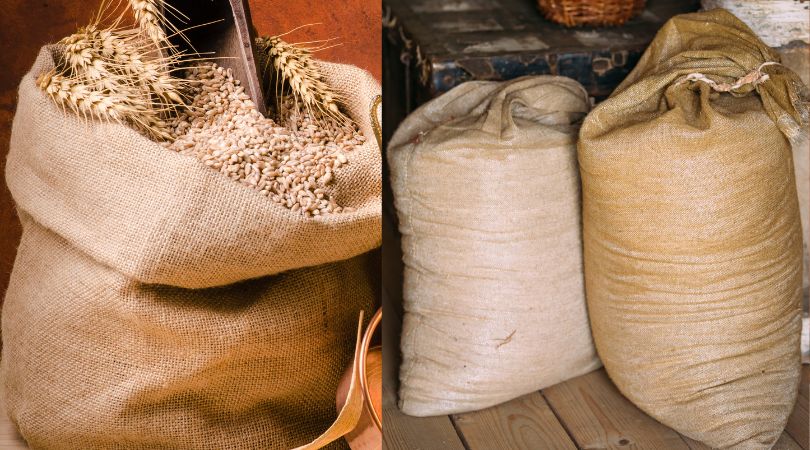By C.R Akbar Shah
Gilgit (Investigative report by C.R Akbar Shah): Two months ago, upon taking charge as Secretary Food Gilgit-Baltistan (G-B), Dildar Malik had disclosed that thousands of sacks of wheat were missing from government warehouses.
With the revelation of the corruption, an inquiry committee was set up to investigate the allegations of fraud in wheat distribution and report its findings to the government. Following the completion of the inquiry, the committee has submitted its report. According to the report, 4,026 sacks of wheat, with a total value of Rs. 99442200 are missing from the Jaglot and Gilgit storage houses.
According to the inquiry report, the Director Food G-B, Civil Supply officer, Assistant Director and Warehouse In-Charge have been implicated in this large-scale theft and fraud of wheat. Departmental disciplinary action has been recommended against all of them.
Exclusion of the name of the Former Food Minister G-B from inquiry is not only suspicious but raises many questions.
C.R Akbar Shah
The investigation began in July 2022 leading to the confiscation of stock, record registers, and other relevant documents up to July 2023. The investigation did not involve the former Food Advisor and current Interior Minister G-B Shams-ul-Haq Lone despite being accused of massive corruption by the former opposition members, esp. the former opposition leader Amjad Hussain Advocate.
Exclusion of former Food Minister G-B from inquiry not only suspicious but also many questions have arisen out of it. This inquiry primarily focuses on the wheat disappearance from specific warehouses. If an unbiased high-level investigation were to take place, it could potentially unveil a massive scandal. Currently, there is a huge pressure on the Secretary Food not to extend the scope of the investigation to other districts. Doing so might expose the wheat mafia. This mafia comprises the assembly members, judges and bureaucrats and other influential figures.
A well-organized and long-standing pattern of Large-scale cheating and fraud in wheat supply has proven to be a profitable business over the past several years. Earlier, it was revealed by the Food Department that the annual allocation for Gilgit-Baltistan is 16 per cent. However, out of the 100,000 sacks of wheat allocated, a 600,000 sacks have gone missing.
There is massive corruption from Pasco to Gilgit-Baltistan depot, which continues through to the flour mills. Subsequently, there is substantial corruption in the distribution of flour, implicating officials within the food department, mill proprietors, the wheat mafia, and flour dealers.
Recently, the Food Department revealed that four categories of fake distributors are currently engaged in flour distribution. However, the department has set up committees to replace the existing distributors and is actively working on appointing new dealers at the local level. This experiment by the Food Department is also likely fail a similar way as the past attempts.
The current coalition government headed by Haji Gulbar Khan neither has the capacity nor will to ensure a rigorous and uncompromising system of accountability.
C.R Akbar Shah
A transparent system of delivery of wheat and flour requires concrete and practical steps at the highest level including a complete overhaul of the existing structure of the Food Department and a special task force to monitor wheat and flour mills from Pasco to Gilgit-Baltistan. There is a need to introduce a separate check and balance and monitoring system to look after all matters and issues of the food department.
To fix issues concerning wheat supply in G-B, the current Chief Secretary G-B also has directed to introduce computerized ration cards and biometric system at sale points. Earlier the Tehreek-e-Insaf government had also approved the targeted distribution of wheat in its cabinet meeting. However, -now after it was removed from power, all decisions it took during it tenure have lost their validity and effectiveness.
The wheat scandal in Gilgit-Baltistan demands attention as it is closely intertwined with the larger food crisis. To address this issue effectively, it is important to make tough, top-level decisions aimed at unveiling the operations of the wheat mafia, and dismantling the network of corrupt elements. To achieve this purpose, an immediate support from the central government is urgently required.
Currently, Gilgit-Baltistan is administered by a coalition government, which is grappling with additional challenges, such as concerns over distribution of portfolios. It does not possess the will power to resolute and unambiguous decisions.
Deep divisions have emerged within the former ruling party, Pakistan Muslim League (N), leading to the separation of a strong faction and putting Hafiz Hafeezur Rahman’s presidency in jeopardy. Similarly, within the Pakistan Peoples Party (PPP), leaders are competing for key portfolios. In this tumultuous scenario, the coalition government neither has the capacity nor the will to ensure a rigorous and uncompromising system of accountability.
Conducting a small-scale investigation will not lead to any substantial actions against the highly corrupt individuals, as they enjoy backing from influential sectarian institutions. It’s pivotal to note that past investigations into wheat and flour corruption have largely been nothing more than fulfilling formalities. The wheat mafia has easily circumvented these inquiries. Consequently, this heinous business of wheat and flour distribution persists to this day.
The writer is a veteran journalist and columnist based at Gilgit city. He writes regularly for Ibex Times.














